
Gary Snyder is an American poet, essayist, lecturer, and environmental activist. His early poetry has been associated with the Beat Generation and the San Francisco Renaissance and he has been described as the "poet laureate of Deep Ecology". Snyder is a winner of a Pulitzer Prize for Poetry and the American Book Award. His work, in his various roles, reflects an immersion in both Buddhist spirituality and nature. He has translated literature into English from ancient Chinese and modern Japanese. For many years, Snyder was an academic at the University of California, Davis, and for a time served as a member of the California Arts Council.

The Bedouin, Beduin, or Bedu are pastorally nomadic Arab tribes who have historically inhabited the desert regions in the Arabian Peninsula, North Africa, the Levant, and Mesopotamia. The Bedouin originated in the Syrian Desert and Arabian Desert but spread across the rest of the Arab world in West Asia and North Africa after the spread of Islam. The English word bedouin comes from the Arabic badawī, which means "desert dweller", and is traditionally contrasted with ḥāḍir, the term for sedentary people. Bedouin territory stretches from the vast deserts of North Africa to the rocky ones of the Middle East. They are sometimes traditionally divided into tribes, or clans, and historically share a common culture of herding camels, sheep and goats. The vast majority of Bedouins adhere to Islam, although there are some fewer numbers of Christian Bedouins present in the Fertile Crescent.
Turan is a historical region in Central Asia. The term is of Iranian origin and may refer to a particular prehistoric human settlement, a historic geographical region, or a culture. The original Turanians were an Iranian tribe of the Avestan age.

Chögyam Trungpa was a Tibetan Buddhist meditation master and holder of both the Kagyu and Nyingma lineages of Tibetan Buddhism.

The Kulin nation is an alliance of five Aboriginal nations in south-up into the Great Dividing Range and the Loddon and Goulburn River valleys.
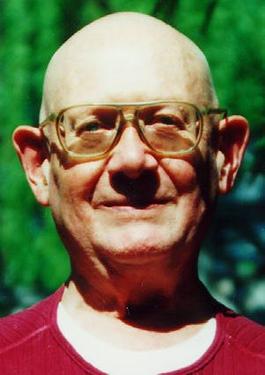
Philip Glenn Whalen was an American poet, Zen Buddhist, and a key figure in the San Francisco Renaissance and close to the Beat generation.
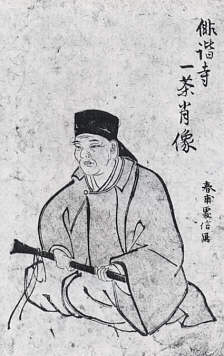
Kobayashi Issa was a Japanese poet and lay Buddhist priest of the Jōdo Shinshū. He is known for his haiku poems and journals. He is better known as simply Issa (一茶), a pen name meaning Cup-of-tea. He is regarded as one of the four haiku masters in Japan, along with Bashō, Buson and Shiki — "the Great Four."
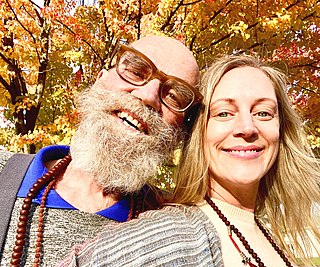
Bhagavan Das is an American yogi who lived for six years in India, Nepal, and Sri Lanka. He is a bhakti yogi, kirtan singer, spiritual teacher and writer.

The Baiga are an ethnic group found in central India primarily in the state of Madhya Pradesh, and in smaller numbers in the surrounding states of Uttar Pradesh, Chhattisgarh and Jharkhand. The largest number of Baiga is found in Baiga-chuk in Mandla district and Balaghat district of Madhya Pradesh. They have sub-castes: Bijhwar, Narotia, Bharotiya, Nahar, Rai maina and Kath maina. The name Baiga means "sorcerer-medicine man".
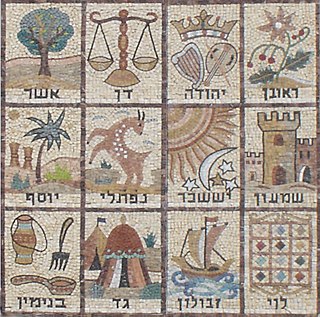
The Twelve Tribes of Israel are, according to Hebrew scriptures, the descendants of the biblical patriarch Jacob, who collectively form the Israelite nation. The tribes were through his twelve sons through his wives, Leah and Rachel, and his concubines, Bilhah and Zilpah. In modern scholarship, there is skepticism as to whether there ever were twelve Israelite tribes, with the use of the number 12 thought more likely to signify a symbolic tradition as part of a national founding myth, although some scholars disagree with this view.
—From Robert Frost's "Stopping by Woods on a Snowy Evening", first published this year in his collection New Hampshire

Jeff Halper is an Israeli-American anthropologist, author, lecturer, and political activist who has lived in Israel since 1973. He is the Director of the Israeli Committee Against House Demolitions (ICAHD) and a co-founder of The One Democratic State Campaign (ODSC). He is a Jewish Israeli.
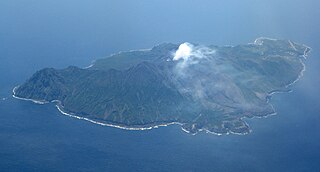
Suwa-no-se Jima (諏訪之瀬島) is one of the Tokara Islands, belonging to Kagoshima Prefecture. The island covers 27.66 km² in area and has a population of 48 people. Although the island has an airport, there are no regularly scheduled services, and access is normally by ferry to the city of Kagoshima on the mainland. The island is about nine hours by boat from the mainland. The islanders are dependent mainly on agriculture, fishing and seasonal tourism.
Philip Boas Yampolsky was an eminent translator and scholar of Zen Buddhism and a former Director of the C. V. Starr East Asian Library of Columbia University. A scholar of Chinese and Japanese religious traditions and a specialist in Zen studies, Yampolsky was known for his translations of canonical Zen writings, which were used as textbooks in both graduate and undergraduate Asian studies courses in American universities. His style was regarded as highly analytical.

John Brandi is an American poet and artist. San Francisco Poet Laureate Jack Hirschman has said of Brandi:
He has been an open roader for much of his life and like his two great forebears, Whitman and Neruda, has named the minute particulars, the details of his sojournings … infusing them with a whole gamut of feelings— compassionate, mischievous, loving and righteous. It's what's made his poetry one of the solid bodies of work that's emerged from the North American West since the '60s.
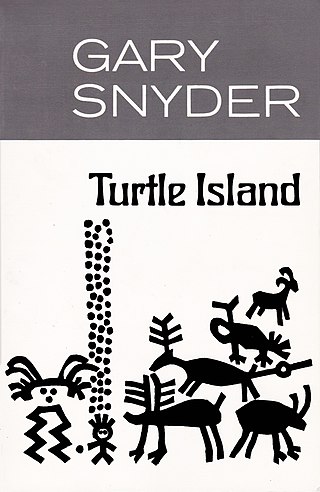
Turtle Island is a book of poems and essays written by Gary Snyder and published by New Directions in 1974. The writings express Snyder's vision for humans to live in harmony with the earth and all its creatures. The book was awarded the Pulitzer Prize for Poetry in 1975. "Turtle Island" is a name for the continent of North America used by many Native American tribes.
Sansei Yamao was a Japanese poet.
Ruth Fuller Sasaki, born Ruth Fuller, was an American writer and Buddhist teacher. She was important figure in the development of Buddhism in the United States. As Ruth Fuller Everett, she met and studied with Daisetz Teitaro Suzuki in Japan in 1930. In 1938, she became a principal supporter of the Buddhist Society of America, in New York. She married Sokei-an, the Zen priest in residence there, in 1944, but he died within a year. In 1949, she went to Kyoto to find another roshi to live and teach in New York, to complete translations of key Zen texts, and to pursue her own Zen training, receiving sanzen from Gotō Zuigan.
Nanao Sakaki was a Japanese poet, author of Bellyfulls and leading personality of The Tribe. He was born to a large family in Kagoshima Prefecture, and raised by parents who ran an indigo dye-house.
The Bhauma dynasty, also known as Kara dynasty, ruled in eastern India between 8th and 10th centuries. Their kingdom, called Toshala, included parts of present-day Odisha.












